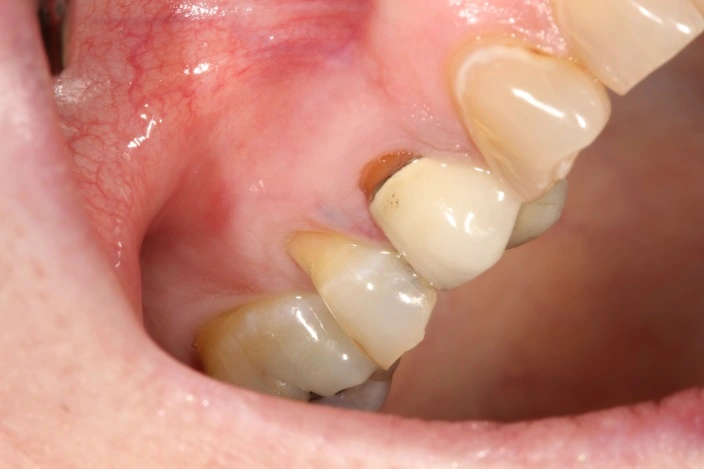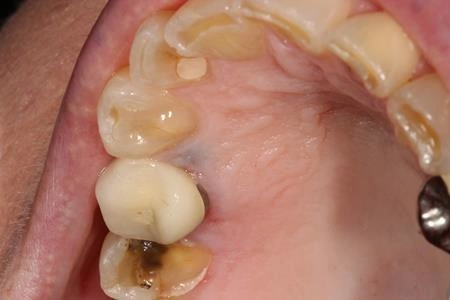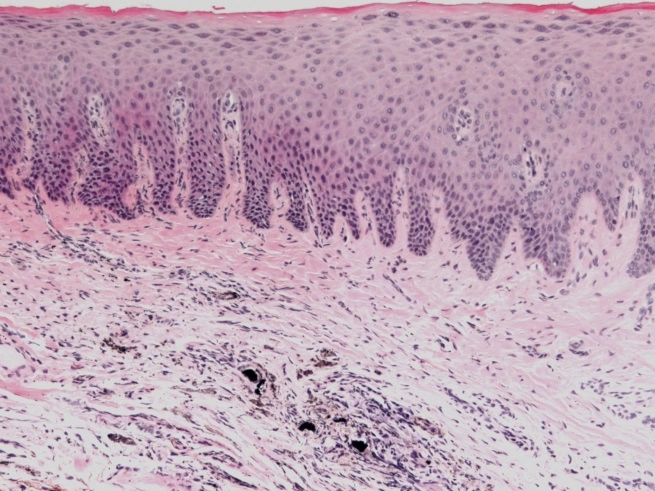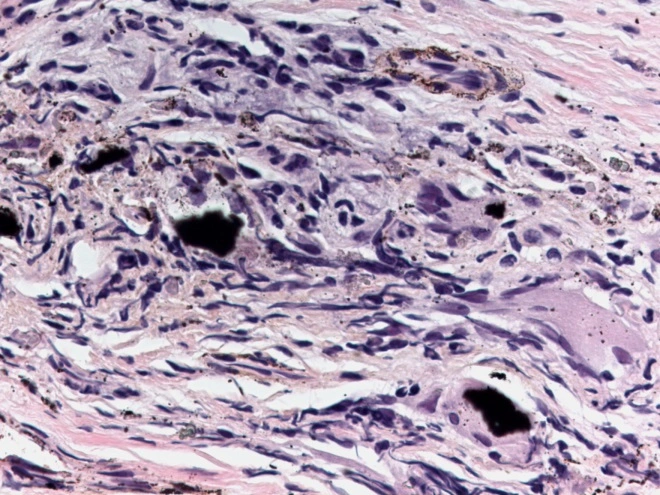Incidental Blue-Gray Macule on Palate
Case Challenge Number: 55
Diagnostic Information
History of Present Illness Ms. Brown is a 39-year-old white female who recently relocated from Flynt, Michigan and presents to your office for a new patient examination. She relates no acute dental problems but has not been to dentist in 3 years. Medical History
Adverse drug effects: none
Medications: atazanavir/ritonavir + tenofovir/emtricitabine, lisinopril, pravastatin, calcium 600mg/vitamin D
Pertinent medical history: HIV + x 8 years, hypertension, elevated cholesterol, osteopenia
Pertinent family history: unknown, adopted
Social history: denies tobacco use; 1 glass of wine per day with evening meal; denies recreational drug use
Clinical Findings Extraoral examination is within normal limits. Intraoral examination reveals an intact dentition with a fractured palatal cusp on #4 and facial cervical caries on #5. A faint blue-gray macule is present on the facial aspect of the papilla between #4/5 (Figure 1). A larger and darker blue-gray macule is noted on the palatal aspect of the papilla between #5/6 (Figure 2). The palatal macule is excised and submitted for histopathologic examination.
Figure 1. Blue-gray macule on facial papilla between #4/5.
Figure 2. Blue-gray macule on palate between #5/6.
Histopathologic Findings The gingival biopsy shows a mucosal soft tissue fragment consisting of hyperplastic orthokeratinized stratified squamous surface epithelium with subjacent fibrovascular connective tissue (Figure 3). There is submucosal deposition of black granular particulate foreign material deposited in small interstitial aggregates, along collagen/elastin fibers, and within vascular walls. A mild chronic inflammatory infiltrate is present and contains focal foreign body-type giant cells (Figure 4).
Figure 3. Low power histologic image of a mucosal soft tissue fragment consisting of stratified squamous surface epithelium with underlying fibrovascular connective tissue. Foreign material is present in the connective tissue.
Figure 4. High power histologic image showing deposition of black granular foreign material within the fibrous connective tissue. There is mild chronic inflammation and focal foreign body giant cells.





